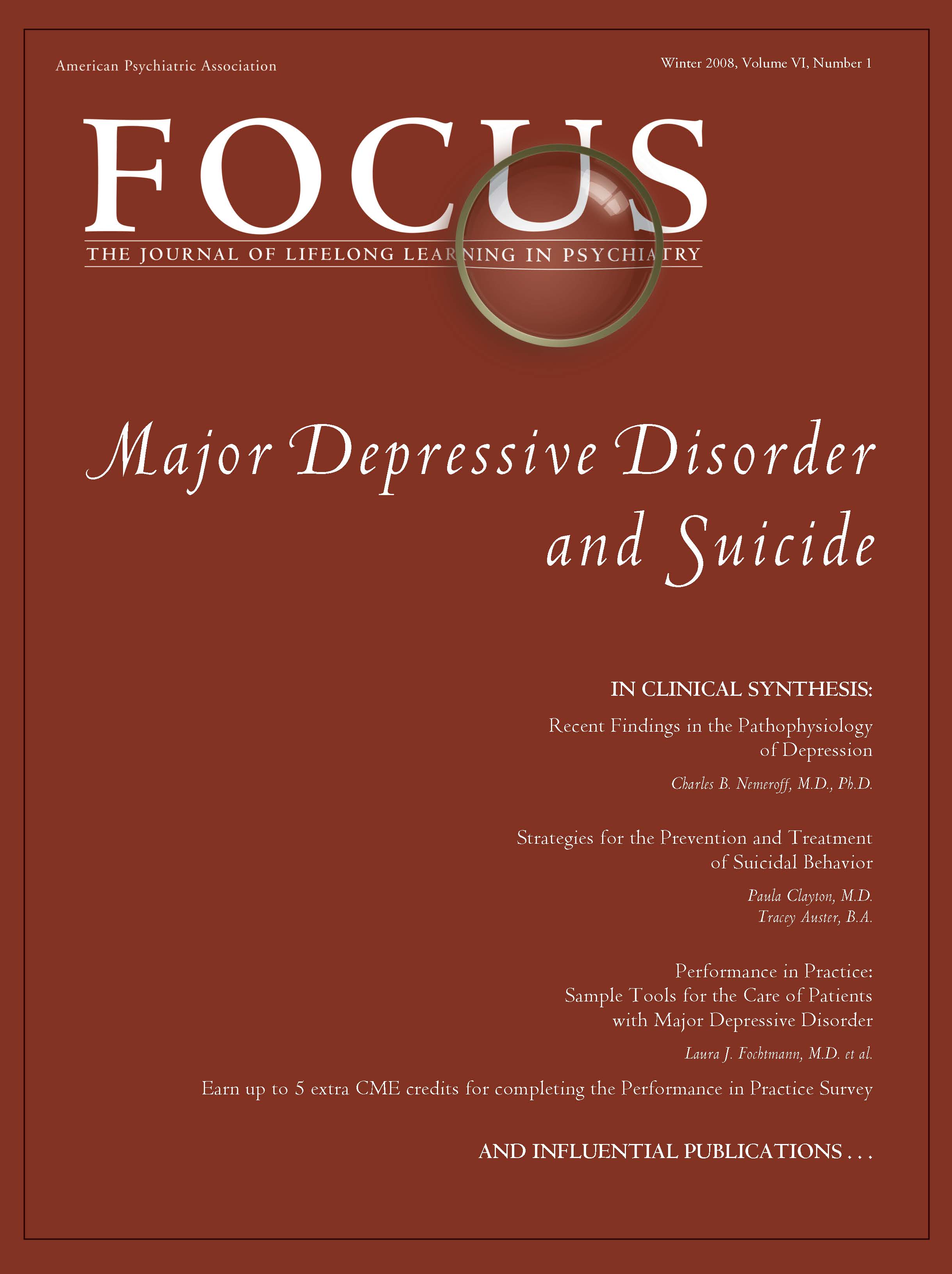Strategies for the Prevention and Treatment of Suicidal Behavior
Abstract
This article discusses research-informed strategies for predicting and treating suicidal behavior. One of the most important approaches is to provide training to health professionals in recognizing and treating depression aggressively. An awareness of risk factors, such as certain psychiatric disorders, past suicide attempts, age, gender, other illnesses, and access to means, is essential to these strategies. Levels of treatment that include proper prescription of medication for depression, paired with psychotherapy, such as cognitive behavior therapy, and extensive communication between patient and health professional may be the best predictors of remission. Intervention plans should also include community education, simple interventions, and treatment of the underlying psychiatric disorders, including the use of lithium and electroconvulsive therapy.



